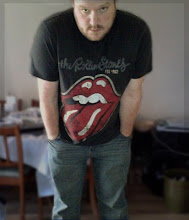 If ever there was someone for whose death a moment of silence was appropriate it was Harold Pinter. He was the king of the pause and I loved him for it. His death, at 78, after a long battle with cancer of the oesophagus has prompted tributes to pour from the theatre world and press. So let me add my little effort to the flow.
If ever there was someone for whose death a moment of silence was appropriate it was Harold Pinter. He was the king of the pause and I loved him for it. His death, at 78, after a long battle with cancer of the oesophagus has prompted tributes to pour from the theatre world and press. So let me add my little effort to the flow.A playwright, an actor, a director and a political activist; he said things I didn’t always agree with, wrote things that I didn’t always like very much and, at times, while studying theatre theory, I cursed his existence. But having been in two plays that he created I can’t deny the artistry and the insight he wielded. They were both the most challenging and enjoyable productions I have been involved in.
Fiercely protective of the people with whom he worked, he often appeared sour, occasionally bitter. That was a shame because the words he wrote in creating ‘The Caretaker’, ‘The Birthday Party’, and ‘the Homecoming’ suggest that of his many layers, the sour ones were the shallowest.
Much has been made of the fact that he had a word coined to describe his writing style. Pinteresque. An all new theatrical device.
Pinteresque: adj. in the style of the characters, situations, etc., of the plays of Harold Pinter, 20th Century English dramatist, marked especially by halting dialogue, uncertainty of identity and air of menace.
Chambers English Dictionary
I had a university professor who loved pauses. He often told us that more happened in the pauses than in the rest of the dialogue. I would personally question that statement but there is a lot to be said about what happens during silence. The discomfort silence creates can bring new levels of meaning to conversation. In a world full of noise there is nothing modern humans can deal with less than complete silence. I should know – I’m typing this upstairs in a coffee shop filled with bustling shoppers rather than in the complete peace of an empty house. And can you deny the fact that you are never so connected with someone than when you can share a meaningful silence with them?
When I was doing plays I loved using pauses. It was ok at university when we were doing heavy dramas – but now the plays I do with local groups tend to be comedies and farces – they don’t like my unnerving pauses in those – they assume I’ve forgotten my words. Our prompt hates me.
As a teacher I use pauses to great effect on my classes. It’s a well known truth that a well timed bout of silence will get the attention of a rowdy class faster than a world of shouting – and have a much better effect on blood pressure and voices.
I have written 29 plays and I think that’s really enough.
So Harold Pinter, we’ll miss you, we’ll continue to produce your work and we’ll continue to lap up those dramatic pauses. This is for you… … … … … … ... ... ... ... ... rest in silence

2 comments:
I used to date someone who used the "art of the dramatic pause" till I figured out that he was only racking his brain trying to come up with what he thought I wanted to hear. Bummer.
But this guy, I'd never heard of. I'm so sheltered. I need to get out more, thanks for introducing him.
damn! you know my secret. Please don't tell the rest of womankind or I will lose my 'enigmatic' tag forever - and its all I got.
Post a Comment